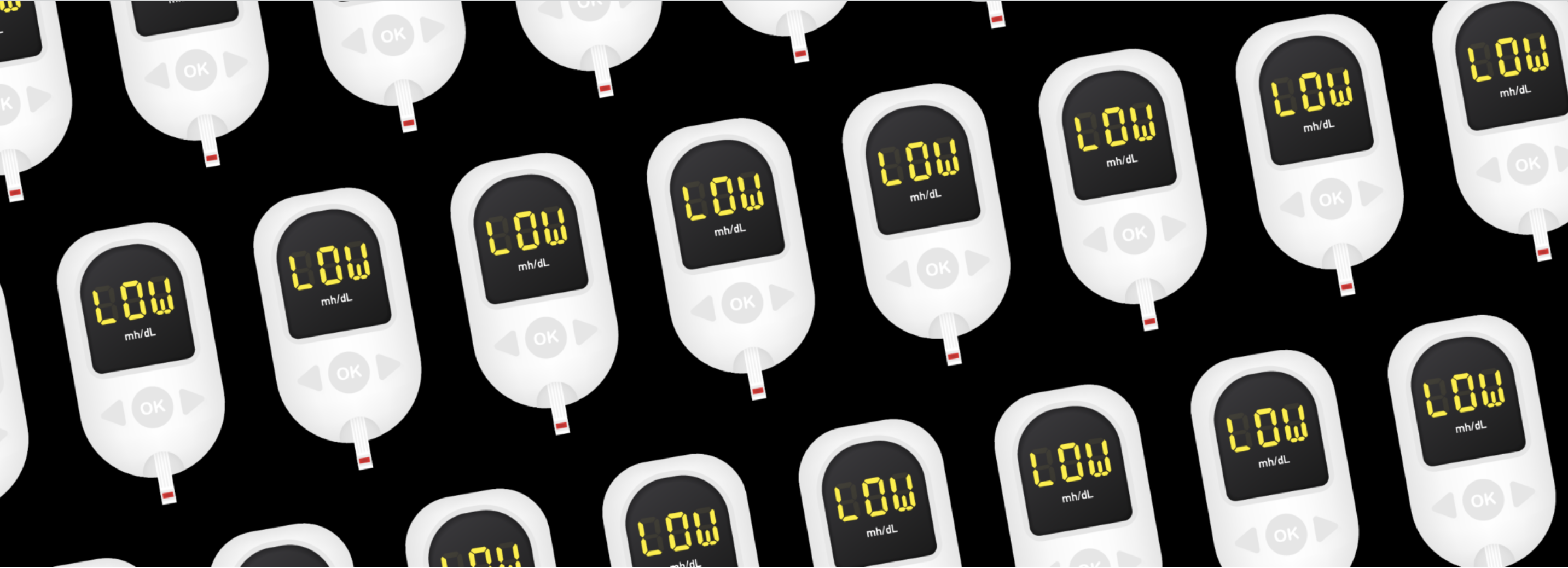Growth, Stress and Reproductive Hormones’ Role in Type 2 Diabetes
Written by: Julia Flaherty
7 minute read
March 15, 2022
Have you ever wondered what role hormones from things like stress or menopause play with type 2 diabetes? Here’s what you should know!
Hormones play an important part in how our bodies work. Unfortunately, the human body can struggle to produce hormones properly!
As a person with type 2 diabetes, your body may struggle to produce enough insulin and you may produce too much glucagon—both are hormones. Insulin is a hormone that regulates glucose levels in your bloodstream, which explains the term “blood sugar.” Insulin can lead to weight gain if your cells absorb too much glucose and your body converts the glucose into fat. As a person with type 2 diabetes, your body may need support from healthcare professionals and different types of medications to achieve safe and healthy hormone levels.
In addition to insulin and glucagon, diabetes can also impact and be impacted by growth hormones, stress hormones and reproductive hormones.
Here, we’ll take a look at how all of these different hormones can change throughout your life and how these changes can affect your diabetes management.
Growth hormones
The body’s natural growth hormone is released by the pituitary gland and affects your height, bone length and muscle growth.
Synthetic (i.e. lab-made, not natural) growth hormones are controversial. Doctors who support the use of synthetic growth hormones in treating type 2 diabetes say that it improves glucose metabolism and body composition (meaning there is some weight loss).
However, The Lancet noted almost 20 years ago that growth hormone therapy was associated with higher levels of insulin, and there was other evidence of insulin resistance. The study indicated that HGH might lead to the early onset of type 2 diabetes in children. Children taking HGH were six times as likely to develop type 2 diabetes (T2D) compared to children who didn’t take it.
Unfortunately, there is a lack of research today concerning type 2 diabetes in youth. As a person with type 2 diabetes, it’s wise to be curious and proceed with caution when approaching any new or controversial medication. Look to your healthcare team for guidance if you have any concerns with your T2D care plan.
Stress hormones
Stress has dastardly impacts on your health, regardless of diabetes.
When you are stressed, your body produces high levels of the hormone cortisol. When cortisol enters your bloodstream, you may experience an increased heart rate and high blood pressure. (High blood pressure can also be a result of diabetes management complications over time.)
Research has shown there may be a link between increased stress levels and type 2 diabetes. Too much cortisol may also play a part in the onset of type 2 diabetes. Some people have too much cortisol already. This is associated with another condition, called mild autonomous cortisol secretion (MACS), which has been linked to type 2 diabetes and blood glucose level changes.
Everyone manages stress differently. Regardless of diabetes, many of us overeat or eat poorly when we are stressed. Overeating, of course, can make blood sugar management more difficult.
Stress affects everyone differently, and everyone needs different resources to cope. Confiding in a loved one may be a good idea if you are struggling with stress or other mental health symptoms. Your loved ones can encourage you to seek help from your doctor if needed.
Menstrual cycles: hormones + insulin
If you are a woman, a non-binary person who has menstrual cycles, or a transmasculine person with type 2 diabetes, you may notice that your insulin needs change or blood sugar levels fluctuate around your menstrual cycle.
Studies have shown that menstrual cycle irregularity may indicate the early signs of developing type 2 diabetes over time. A study published in 2019 that surveyed almost 76k premenopausal US female nurses from 1993 to June 30, 2017, showed that “irregular and long menstrual cycles across the reproductive life span were associated with a greater risk of type 2 diabetes.”
However, the study also notes that “the evidence linking irregular and long menstrual cycles with type 2 diabetes is scarce and inconsistent.”
While this provides some insight into the correlations between developing type 2 diabetes and your menstrual cycle, you may wonder: What is the correlation between people who already have type 2 diabetes and have a recurring (irregular or regular) menstrual cycle?
Very Well Health explains that “high levels of insulin can interact with hormones that regulate menstruation.” You may find that your diabetes is harder to manage during your menstrual cycle—especially if you manage your type 2 diabetes with insulin or other blood sugar-lowering medication. Several health websites also caution that irregular periods may be early warning signs of polycystic ovarian syndrome (PCOS).
This stresses the importance of not only having routine appointments with your primary care provider or endocrinologist but your gynecologist.
Menopause: estrogen + progesterone changes
You may have mixed feelings about starting menopause and ending your menstrual cycle—dreading the idea of your period ending or feeling excited about it. Regardless of type 2 diabetes, all people have different feelings and experiences with menopause.
When your body goes through menopause (typically from ages 45 to 55, though this timeframe may vary due to genetics and other factors), your progesterone and estrogen levels change.
When these hormone levels change, your blood sugar levels may also be affected, which can lead to problems with your type 2 diabetes management. The more time you spend outside of your goal range, the higher your risk is for developing diabetes complications associated with high blood sugar levels.
Menopause may trigger the need to treat your type 2 diabetes with insulin. Hormonal swings that occur during menopause can be brutal for most women but especially for women with diabetes. Insulin is a hormone that you may need to administer daily to aid in your type 2 diabetes blood sugar management. When you throw another set of hormones into the mix that you have to learn how to control in conjunction with insulin, things can get tricky!
Keeping your blood sugar levels within your desired range may be challenging during menopause, so it’s important to work closely with your healthcare provider (HCP) if you need help adapting to these changes or feel you may benefit from medication. Your HCP may talk to you about hormone replacement therapy (HRT), but it is controversial. Your HCP can go over options with you.
Your current type 2 diabetes medications are typically re-evaluated first, and HRT is generally not a go-to treatment advised by today’s healthcare providers.
Menopause: the lasting impact on type 2 diabetes management
When your body goes through menopause, it uses energy differently, which means fat cells change, and you may gain weight more easily than before. This can be difficult when you are trying to manage your blood sugar levels closely. Your bone and heart health, physical abilities and body shape may also be affected by menopause.
Menopause may even lead to the diagnosis of type 2 diabetes in some women. Everyday Health notes that certain people of color “have a three-to fivefold higher chance of having type 2 diabetes” and “Hispanic people with an Indian background may have a 25 percent increased risk of diabetes in menopausal years.”
Belly fat in anyone, regardless of diabetes, can lead to obesity and insulin resistance. Weight gain after menopause is typical.
If you’re concerned about changes in your body’s hormone production, talk to your healthcare team. Your hormone levels are supposed to change throughout your life, but when you have diabetes, it means you have to make other adjustments, too!
Your healthcare team should support you in all of your type 2 diabetes management needs and concerns.

Author
Julia Flaherty
Julia Flaherty is a published children’s book author, writer and editor, award-winning digital marketer, content creator and type 1 diabetes advocate. Find Julia’s first book, “Rosie Becomes a Warrior.” Julia finds therapy in building connections within the diabetes community. Being able to contribute to its progress brings her joy. She loves connecting with the diabetes communities, being creative and storytelling. You will find Julia hiking, traveling, working on her next book, or diving into a new art project in her free time. Connect with Julia on LinkedIn or Twitter.
Related Resources

The biggest barbecue day of the year is the 4th of July! Celebrating the 4th...
Read more

Hypoglycemia and severe hypoglycemia are two things against which all people with diabetes should be...
Read more

Whether or not you have type 2 diabetes, you must eat. You must also pay...
Read more

